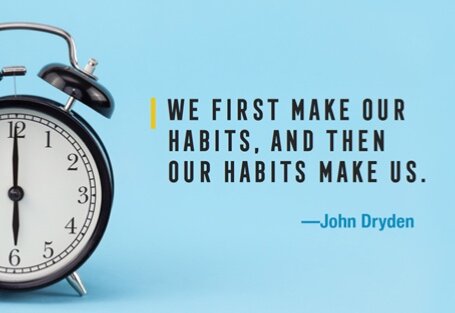Leadership is more critical than ever as leaders face unprecedented challenges. In these moments, it’s essential to stay present, even when you feel unsure about finding the right words. Take a moment to process, and remember to remain grounded, unaffected by the behaviour or framing of your coachee (client). This approach enables clarity and authentic leadership.
It's not their fault
When a top player on the team suddenly finds themselves in charge, their instinct is often to tell everyone what to do. I think this approach is exhausting and unsustainable. It’s not the new leader’s fault, though as they are rarely given proper training or a coach to guide them through the transition. Leadership involves three key responsibilities: coaching, motivating, and inspecting, depending on the situation. Inspection, in my view, includes activities like forecasting and setting quarterly goals.
Leaders often feel the urge to step in and be the saviour. It feels concrete and actionable: “We have an issue? I’ll handle it with the client. There’s a problem with a deal? I’ll tell you the next three steps to win.” Leaders leverage their experience and knowledge, while team members rely on their facts and research. But the more leaders step in, the more they create dependency. Team members will return to the leader’s office even sooner next time, seeking direction earlier in the process. Over time, this dynamic makes the team worse, not better. I call this “learned helplessness.”
Things to consider
In today’s world, business outcomes are influenced by factors such as new technologies, increasing geopolitical uncertainty, value-chain disruptions, energy transition, and climate change. Gender norms also play a significant role in shaping societal roles. In Denmark, it is expected that both men and women contribute to household income, share parental leave equally, and view a model where both parents work in equal proportions as most desirable. I think that promoting an inclusive workplace culture relies on awareness-raising, training, positive reinforcement, and accountability. What do you think?
Growing the capabilities of others
Leadership isn't about possessing all the answers; it's about posing the right questions that challenge traditional thinking. I think that your happiness stems from a blend of enjoyment, satisfaction, and purpose. If you're interested in securing an external strategic business partner and advisor for your talent development and leadership solutions, please feel free to reach out to me via email.
““Just as athletes benefit from coaching, leaders do too!””
Mental skills can be trained
Once you realise that you have an emotional brain, a logical brain, and a memory then this will give you a new insight into yourself and clarify why you behave and feel the way you do. Some of the assumptions you are making about other people, perhaps you should start by looking at yourself. Try asking yourself these questions:
· Why do I feel the way I am feeling?
· What triggers me and why do I respond the way I do?
· What does my best self, look like and why can’t I be this way all the time?
· Why am I feeling like my shadow self today?
Contact me via e-mail for a confidential 1:1 meeting.
The power of leverage
I think leadership is not only about vision and setting strategy, leadership is also about building a team and nurturing their talent to enable them perform to the best of their abilities. The Centre for Creative Leadership think these are the ten traits of great leaders, in no specific order:
- Ability to delegate
- Ability to inspire
- Commitment
- Communication
- Confidence
- Creativity
- Honesty
- Intuition
- Positive attitude
- Sense of humour
Which one do you think is most important? Contact me via e-mail and let me have your thoughts.
Today is your day
Social media is constantly telling us what other are doing and what interests they have. I think that the most important thing you can do in your life is to know who you are and understand what makes you different and unique. Let’s try a little experiment…
Create a list of things that you love and hate.
Look through the list and then ask yourself, “Is this because of what other people are telling me to love and hate, or does it come truly from within?”
This process in not just about your career or love life, it’s about your mental health. Discovering who you are and what makes you unique will allow you to become acquainted with your own desires and impulses, and not be controlled by what other people are doing and thinking.
A tremendous feeling of recognition
Image c/o Harvard Business Review
Having a feeling of worthiness regardless of what you are doing is the underpinning of unconditional love and built-in value. The most important opinion you will ever have is the one you have of yourself, no one looks at a photo of you with such scrutiny. We tend to be so critical of ourselves, every blemish instead of blessing is what we count. I think the best way to reinforce good behaviours and overcome fear is with knowledge, training, skills, and action. The best tips are given before anyone does anything because it raises the level of expectation. I think that a tip is an expected level of achievement which you want to give to yourself and other people because only an expected level of success is motivational. And if you expect more from yourself and others then you will perform more to that expectation than anything else.
If you are inexperienced, you see the danger in every opportunity and when you are experienced you see the potential. You can engage role models, coaches, and mentors, they will teach you the “correct swing” and then you will gain courage and confidence with knowledge and training. I think when you have the ability to influence people, it really does change the way you go about your day-to-day life and approach opportunities. I can help you eliminate the fear of the unknown, the fear of rejection, the fear of change and the fear of success.
Dig the well before you get thirsty
Personal
We don’t question assumptions until the universe forces us to move out of the status quo. The people who get ahead are usually the people who do that questioning before they are forced out of the status quo, before a crisis strikes. Think out your outdated assumptions before the universe does it for you. Look at the decisions you are taking in your life right now and reflect. Question what you are doing and why you are doing them. And if you do not have a good enough answer for yourself then it’s probably not as strong as you believe it is.
Professional
I think that it’s in the hard times are when you grow and learn. To build top teams you will need to have real openness, to be honest without getting personal. Encouraging team members to express views without the fear of being ridiculed. Modern life is very technology-based, with people on their phones, therefore, the art of communication and speaking to people is nowhere as much part of life as when I was growing up.
Don't do it alone
Image via Shutterstock
It’s a good idea to have the map before you enter the woods! Don't try to become a coach, an online trainer or monetise content without a roadmap because you'll struggle needlessly, when there are proven strategies you could have implemented right away.
Don't try to build a huge fanbase and truly inspire millions of people without knowing what really works, what business models will sustain you, how to scale and serve well. In order to reach as many people as you deserve, it would be advisable to seek guidance from a marketing/branding expert.
Don't try to get brand deals or work with the big names until you know what the industry is like and how to truly make online marketing work for you 24/7. I think that it’s important for both your loved ones and yourself to get the training you need to win. You deserve it!
Why Do We Do What We Do?
The great Zig Ziglar said, “Motivation gets you going, and habit gets you there. Make motivation a habit and you will get there more quickly and have more fun on the trip. You are free to choose, but the choices you make today will determine what you have, be and do in the tomorrow of your life.”
We are not in the business of knowledge transformation we are in the business of skill acquisition. Do you know the difference between a skill and a habit? A skill is the ability to do something well and a habit is something you do mentally or physically, that starts as a choice and then becomes a nearly automatic pattern.
In reality, a habit is the function of our subconscious mind. There is no greater evidence of the marvelous power of our subconscious than the force and sway habit holds in our life. We form habits in our subconscious mind by repeating a thought or behavior and act it out over and over again until it establishes tracks in our subconscious mind and becomes automatic. What percentage of our daily behaviors are choice? Studies have shown that between 40 and 45% of what we do each day are habits. Therefore, when we understand how habits work, then rather than being the consumer of our lives, we become the creator.
The Power of Habits training is about teaching leaders and individuals how to leverage habits so that they can improve results. The key to exercising regularly, losing weight, being more productive and achieving success is understanding how habits work. The Power of Habits training will do 3 things: increase performance, improve outcome and ignite culture. Performance is what we do, results is what comes from our actions, and culture is how we behave.
We change the world by changing behavior and there’s a process to that and at Peak Balance (Vital Smarts), our digital learning tools can help facilitate training outside the traditional classroom settings. We have put together a series of micro-trainings which consist of a series of short, focused learning modules that are delivered through Adobe Connect. These trainings have proved to be highly effective at accelerating onboarding and improving retention.
For further information - contact: sb@peakbalance.dk
Crucial Conversations Training
Did you know that I am a certified Crucial Conversations Trainer?
Crucial Conversations teaches skills for creating alignment and agreement by fostering open dialogue around high-stakes, emotional and risky topics - at all levels of your organization. By learning how to speak and be heard (and encouraging others to do the same), you’ll surface the best ideas, make the highest-quality decisions and then act on your decisions with unity and commitment.
What Is a Crucial Conversation?
A crucial conversation is a discussion between two or more people where the stakes are high, opinions vary, and emotions run strong. These conversations - when handled poorly or ignored - lead to strained relationships and dismal results.
What Does Crucial Conversations Training Teach?
Crucial Conversations teaches participants how to:
• Speak persuasively, not abrasively
• Foster teamwork and better decision making
• Build acceptance rather than resistance
• Resolve individual and group disagreements
Who Needs Crucial Conversations Training?
Does your organization suffer from taboo topics, deference, disagreement, analysis paralysis, information hoarding, office politics or alienation? Is your organization battling declining productivity, safety violations, low morale, reduced quality, poor customer satisfaction or other bottom-line concerns? Then you, your team, or your organization needs Crucial Conversations Training.
My aim is to guide teams, leaders and entrepreneurs on how to focus on your company’s performance and culture by integrating open communication into the heart of your business. Crucial Conversations workshops are two days and ideally have a minimum of six participant. For further information please contact me.














